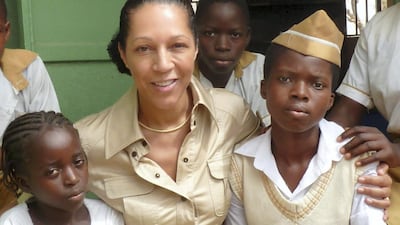Britain has appointed a new envoy for girls’ education, a topic the government says is a key priority for it as it takes the G7 presidency in 2021 and before a global summit later this year that seeks to mobilise global action to ensure every child can be educated.
Helen Grant, MP for Maidstone and the Weald in southeast England, comes to the role having been a solicitor for 23 years who specialised in protecting women and children from domestic abuse before she came to parliament.
“I am very excited to be appointed by the Prime Minister as the UK Special Envoy for Girls’ Education at such a crucially important time. Empowering women and girls has always been a cause extremely close to my heart,” said Ms Grant, who also is Prime Minister Boris Johnson’s trade envoy to Nigeria.
“I am therefore looking forward to advocating, around the world, for our Prime Minister’s very clear message that 12 years of education is one of the most powerful tools we have available to improve communities across the globe.
“High quality female education empowers women, reduces poverty and unleashes economic growth and it should be an absolute priority for the international community,” she added.
Along with the Global Partnership for Education and Kenya, Britain plans to host a summit later this year to raise billions in new resources to ensure that 175 million children are given educational opportunities in 87 developing countries.
The envoy's role will also include securing support for UK initiatives to enable 40 million more girls in schools in the developing world by 2025.

Mr Johnson previously described the number of children out of school worldwide because of Covid-19 “a toll of wasted potential and missed opportunity”.
“It is my fervent belief that educating girls is the simplest and most transformative thing we can do to lift communities out of poverty, end the scourge of gender-based violence and build back better from the pandemic,” he said upon the appointment of Ms Grant.
“It can change the fortunes of not just individual women and girls, but communities and nations.”
From 2012-2013 Ms Grant was a junior government minister for Justice and Women and Equality.
The drive to raise funds for the Global Partnership for Education will seek $5 billion to support learning in the world’s most vulnerable countries. It will bring together businesses, civil society and governments in an effort to increase investment and propel the action needed so children can access education.
The pandemic has made a bad situation worse. Research before the crisis showed that nine out of 10 children in low income countries were unable to read a simple text by age 10. At its height Covid-19 put 1.6 billion children out of school and there are fears tens of millions will never go back to the classroom. Studies show that the lost wages of children who do not go to school is equivalent to 10 per cent of global income.
Earlier this month Unicef said nearly one in three adolescent girls from the poorest households in the world had never been to school.
“As long as public education spending is disproportionately skewed towards children from the richest households, the poorest will have little hope of escaping poverty, learning the skills they need to compete and succeed in today’s world, and contributing to their countries’ economies,” said UNICEF’s executive director Henrietta Fore.


